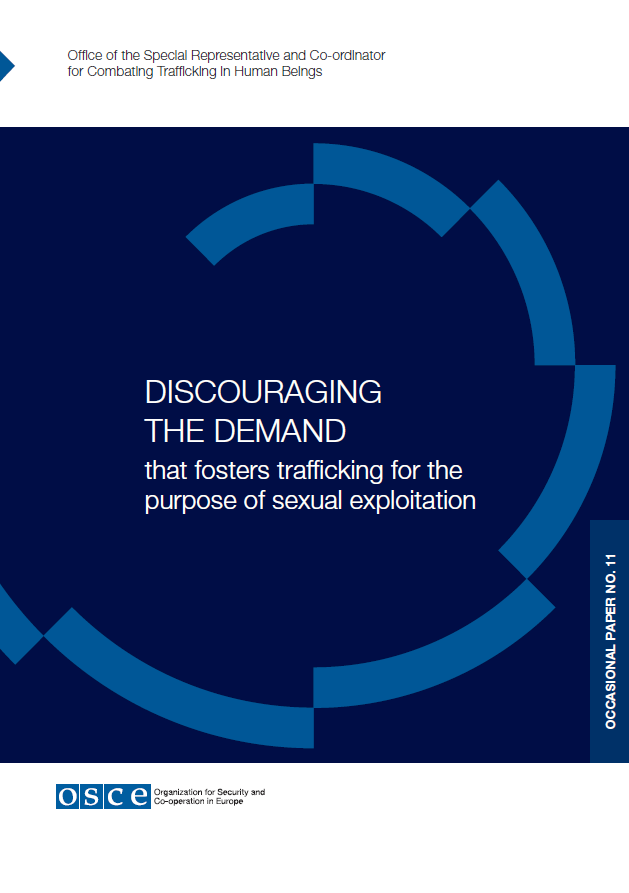This Occasional Paper highlights the importance of addressing the demand that fosters trafficking for sexual exploitation, in particular the exploitation of the prostitution of others. In doing so, it puts a spotlight on the role of demand in encouraging exploitation and causing harm to victims; outlines the scope of the international obligations and commitments of States to discourage demand; analyses the ways in which States have responded to these obligations and commitments in their criminal justice and prevention practices; and offers recommendations on how to better incorporate demand into national efforts. The primary aim of the paper is to support and enhance the implementation of State-led responses to demand.

